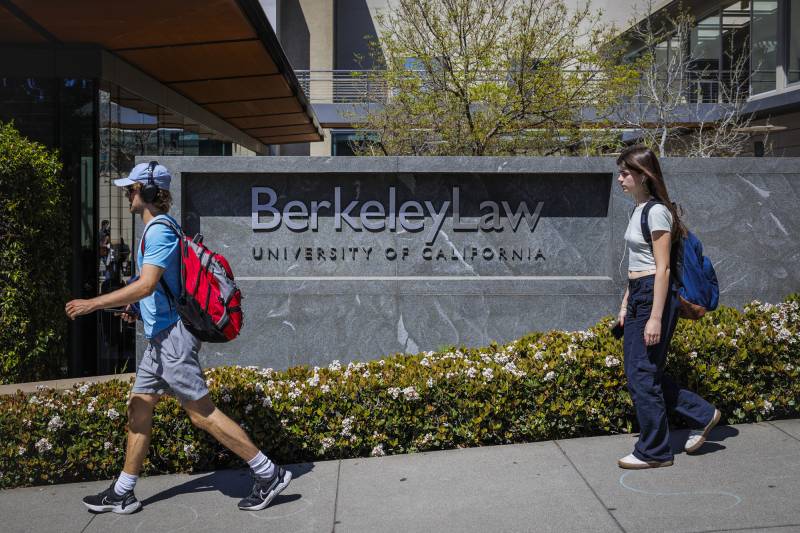A UC Berkeley Muslim law student plans to file a discrimination complaint against the university after accusing a law professor of physically assaulting her as she attempted to protest a dinner event held for graduating students at the home of the law school’s dean.
On Tuesday evening, several dozen law students attended the first of three dinners hosted by Dean Erwin Chemerinsky and his wife, law professor Catherine Fisk, in the backyard garden of the couple’s Oakland home in what was intended to be a celebration of the students’ final weeks of law school.
As captured in a now-viral video of the incident, third-year law student Malak Afaneh, who is Palestinian American, stands before her classmates on the garden steps, wearing a red hijab and black and white keffiyeh around her shoulders. Speaking into a microphone, she begins with a traditional Muslim greeting of peace to mark the final night of the Islamic holy month of Ramadan.

